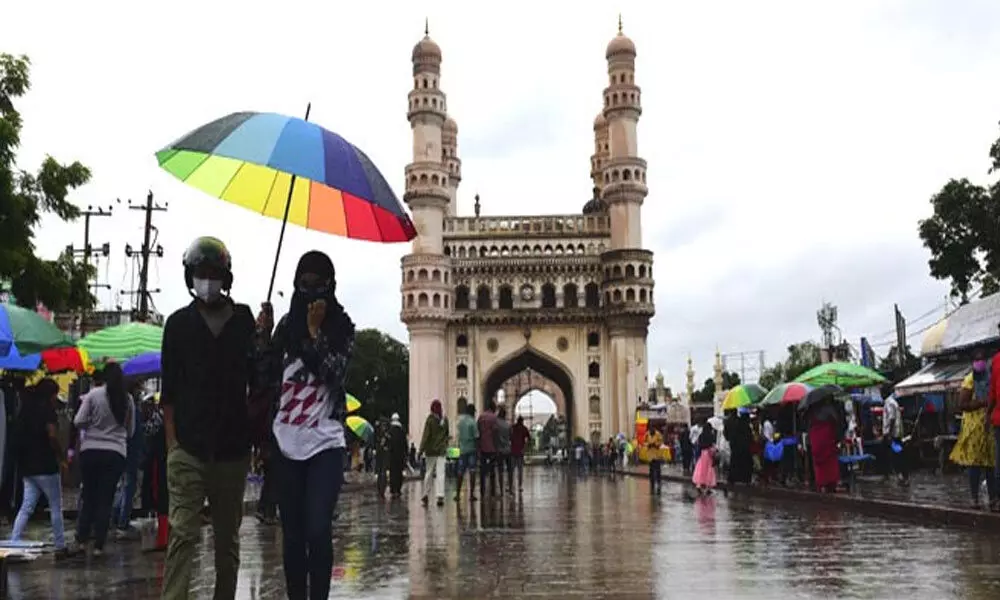Hyderabad grapples with significant climate challenges, especially during the pre-monsoon season.
The city experiences drastic temperature fluctuations and intense heat waves, impacting the health and well-being of its residents. Understanding these climate changes and their effects on health is crucial for individuals and policymakers alike.
Hyderabad’s Climate Profile
Hyderabad has a semi-arid climate characterized by hot summers, moderate winters, and scanty rainfall. The city experiences a typical monsoonal pattern, with the southwest monsoon bringing most of its rainfall between June and September. However, before the onset of the monsoon, Hyderabad witnesses scorching temperatures and dry weather conditions during the pre-monsoon period, typically from April to June.
Pre-Monsoon Heat Issues on Health
The pre-monsoon season in Hyderabad is notorious for its oppressive heat, often leading to various health concerns among residents. Here are some of the primary health issues exacerbated by the pre-monsoon heat:
- Heat Stress and Heatstroke: During the pre-monsoon period, Hyderabad experiences extremely high temperatures, sometimes exceeding 40 degrees Celsius (104 degrees Fahrenheit). Prolonged exposure to such intense heat can cause heat stress and heatstroke, particularly among vulnerable populations such as the elderly, children, and outdoor workers. Heatstroke is a medical emergency characterized by a high body temperature, altered mental state, and other symptoms, which can be life-threatening if not treated promptly.
- Dehydration: The scorching heat and dry air can lead to excessive sweating and fluid loss, increasing the risk of dehydration. Dehydration occurs when the body loses more fluids than it takes in, resulting in symptoms such as dry mouth, fatigue, dizziness, and decreased urine output. Severe dehydration can lead to electrolyte imbalances and heat-related illnesses.
- Respiratory Issues: The dusty and dry conditions prevalent during the pre-monsoon season contribute to poor air quality, exacerbating respiratory problems such as asthma and allergies. Airborne pollutants and particulate matter can irritate the respiratory tract, leading to coughing, wheezing, and difficulty breathing, especially in individuals with pre-existing respiratory conditions.
- Skin Problems: Exposure to prolonged sunlight and UV radiation can cause various skin issues, including sunburn, heat rash, and exacerbation of existing skin conditions like eczema and psoriasis. The combination of heat and sweat can also clog pores, leading to acne and fungal infections in susceptible individuals.
Mitigation Strategies
To address the health challenges posed by the pre-monsoon heat in Hyderabad, several mitigation strategies can be implemented:
- Public Awareness Campaigns: Raising awareness about the risks of heat-related illnesses and educating the public about preventive measures such as staying hydrated, seeking shade, and avoiding outdoor activities during peak heat hours can help reduce the incidence of heat-related health issues.
- Access to Cooling Centers: Establishing cooling centers in densely populated areas, especially for vulnerable populations like the elderly and homeless, can provide relief from the heat and prevent heat-related emergencies. These centers can offer air-conditioned facilities, hydration stations, and medical assistance if needed.
- Green Infrastructure: Increasing green spaces and urban vegetation not only helps mitigate the urban heat island effect but also improves air quality and provides natural cooling. Planting trees, creating parks, and implementing green roofs and walls can significantly contribute to reducing heat-related health risks.
- Urban Planning and Design: Incorporating heat-resilient design principles into urban planning and infrastructure development can help mitigate the impacts of extreme heat. This includes designing buildings with proper ventilation, using heat-reflective materials, and implementing measures to reduce heat absorption in urban surfaces.
Conclusion
Hyderabad’s pre-monsoon heat poses significant challenges to public health, necessitating proactive measures to mitigate its adverse effects. By understanding the climate changes and implementing appropriate strategies, stakeholders can work towards creating a healthier and more resilient city for its residents, ensuring their well-being even amidst the sweltering heat of the pre-monsoon season. #hydkhabar

